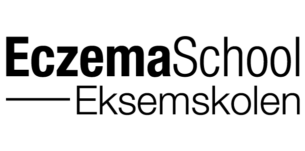FREQUENTLY ASKED QUESTIONS
Here you will find the most frequently asked questions regarding eczema. The answers are given by experienced professionals from Norway and Hong Kong.
The main treatment is topical treatment with creams, ointments, baths and wraps. Even in severe cases where additional treatment with immunosuppressive drugs given, a good topical treatment is still essential for successful treatment of eczema. If topical treatment alone does not produce desired results, one is often given phototherapy that is usually carried out daily for 3-4 weeks at an outpatient clinic.
In children who are severely affected or live in areas without adequate sunlight, climate therapy abroad may be an option, effect of which mediated mainly by sun and seawater.
Eczema outbreaks can be prevented. The most important measure is regular use of emollients, which involves moisturizing most of the body up to several times per day. This should be done on a daily basis. Other important measures include limiting contact with soap and water. In other words: Do not shower every day. Protect your skin from outdoor influences (e.g. by using gloves, cold cream).
We’ve got professor Ingvard Willhelmsen to talk about cortisone and steroid treatment, and we recommend you to listen to his lectures!
The most effective medication to relieve itch is steroids. It shall especially be used in the acute phase of the eczema outbreak when itching gets really bad. If the correct type of steroid is applied, the itch usually begins to subside after a few days. Irritation can be alleviated by baths, wraps and lotion. “Allergy Medicine” (antihistamine) also helps in many cases.
Moisturizing the skin forms the essence in all eczema treatment. Even with modern medical technology, treatment without moisturizers and steroids is unthinkable.
It is often difficult to delineate any reason for flare-ups. One should bear in mind that eczema comes from within and is not due to allergies or other external influences. However, external environment/conditions may still play a role in affecting the course of eczema. There are usually multiple factors that appear simultaneously and are mutually reinforcing one another, e.g. weather changes, excessive showering, excessive washing with soap, stress etc, while in some cases allergies may be a major factor (e.g. certain foods, animal hair).
Most children grow out of eczema by themselves. Relapses in adulthood, however, are not uncommon. This is especially the case among certain professions which involve frequent contact with allergens.
Eczema treatment is difficult. Even if you do everything right, the outcome may still remain unsatisfactory.
The eczema can be in a period of high disease activity or secondary infection which impairs healing. Among the most common mistakes are:
- 1. The cortisone cream / ointment has been tapered too quickly.
- 2. The infection is not adequately treated topically.
- 3. Moisturizers are not applied frequent enough.
Treatment must always be individualized. Success often lies in tackling seemingly small details. One should seek advice from a knowledgeable doctor if the desired effect is not achieved.
Moisturizers are vitally important in both treatment and prevention of eczema. A good moisturizer should feel comfortable and should not cause any itchiness. It must be fragrance-free. A specific moisturizer can be felt differently among different people. Hence, you are advised to try different brands / types to find the one that best suits your skin. Normally, creams or ointments are used. Lotions and milks are usually not fatty enough, but can still be appropriate for some patients in certain body areas (e.g. on the face).
Yes, if strong steroids creams / ointments are applied every day for several months, the skin may eventually become thin. The same principle applies to oral steroid/cortisone tablets. This, however, should not be confused with the treatment effect of steroids which can be seen after a few days of application on the eczematous skin. Eczema may cause swelling of the skin, which will soon disappear after steroids are stopped. Many parents misinterpret this as a side effect of steroids. In fact, it is not!
On the contrary. It is safe to use steroid creams and ointments in some cases for prolonged periods of 4 weeks or more. The length of treatment should be determined by a qualified physician.
Yes, certain types of food can affect your child’s eczema by food substances that are passed into the breast milk.
Steroids are classified into 4 classes: group 1, 2, 3 or 4. Roman numerals are often used. Group 1 is the weakest and can be obtained without a prescription. Group 4 is the strongest and is not routinely used in children. Nonetheless, two creams from the same group may still act differently in treating eczema. This may be due to the presence of other substances in the cream.
Eczema on the face and scalp is treated in the same manner as the rest of the body. As facial skin is very sensitive, it can be difficult to attain good eczema control. Weak steroid creams and ointments (group 1-2) are recommended for these areas.
Crusts and scales on the scalp can be dissolved with salicylic acid or oily cream. They usually have to be applied for several hours to be effective. Treatment of facial and scalp eczema requires individual supervision by a doctor.
